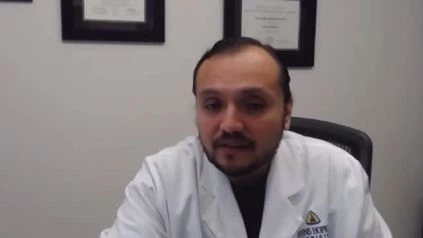Cesar A. Santa-Maria, MD MSCI from Johns Hopkins speaks about the PRISMM Study – Patient Response to Immunotherapy Using Spliceosome Mutational Markers.
Link to Study –
https://www.hopkinsmedicine.org/kimmel_cancer_center/cancers_we_treat/breast_cancer_program/research_and_clinical_trials/PRISMM/
Link to ClinicalTrials –
https://clinicaltrials.gov/ct2/show/NCT04447651
Summary Brief:
This research is being performed to see whether patients with advanced or metastatic breast cancer who have a particular tumor genetic mutation (the SF3B1 mutation) are more likely to react to commercially available immunotherapy agents.
Description in detail:
This is a non-therapeutic study, meaning that while Johns Hopkins offers a treatment recommendation based on the genetic information of participants, the oncologist of participants and participants will eventually determine what to do, and the oncologist of participants will track the day-to-day care of participants while on therapy. Participation includes giving researchers access to the sequencing report and medical history of the participants, supplying a blood sample (approximately 8 tablespoons) at baseline and probably again after three months, and answering questionnaires. If participants join the study, a panel of experts (Johns Hopkins Molecular Tumor Board) will review the genetic information participants provided by participants and make a decision on the referral for treatment. Regardless of what procedure is prescribed, blood would be obtained at baseline. If immunotherapy is recommended, investigators at 3 months of age can collect blood again. The oncologist of the patients and participants will eventually determine whether or not the participants continue with the prescribed treatment; the decision made by Johns Hopkins is not binding in any way. The oncologist of the participants will proceed with normal treatment while participants are on therapy according to standard procedures. In order to determine how patients do counseling, the investigators will collect health information and administer questionnaires with participants and oncologist participants. The key risks are the pain of drawing blood (which is supposed to be minor and not final), the boredom of completing questionnaires, and the possibility that knowledge beyond the study will become known to individuals. Participants may or may not benefit from being in the study directly and there is no participation charge.

